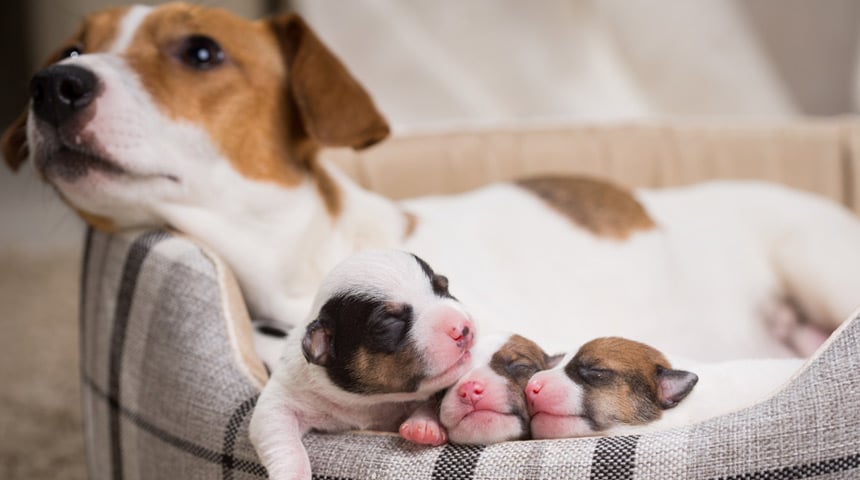
In the wild, dogs normally prepare a nest to raise newborns in for the first few days. In our homes, it is essential to prepare a warm, safe, isolated and calm place for Mom and her babies. Here are some tips to prepare for the arrival of a litter of puppies:
Preparing a Whelping Box
It is important to establish a place where puppies will be close to their mother. This whelping box must also be closed so that newborns cannot get lost. For example, for puppies, a large crate with thin bars might work.
Keeping Their Environment Clean
Newborns have a particularly fragile immune system in their first weeks. It is essential to regularly clean the surfaces of their box, as well as the blankets and cushions used for their comfort.
Reducing Stress
Start setting up the whelping box several days before the due date, so that the mother gets used to it. The chosen location must be isolated from other animals in the house, in a quiet place. It is important to ensure that the mother and her newborns are not stressed, so that they are as healthy as possible during their growth and development.
Regulate the Temperature
Newborn dogs have great difficulty regulating their body temperature on their own. The surrounding temperature therefore directly influences their immunity, diet, digestion, hydration and weight gain.
For puppies, the recommended ambient temperature is 28.9℃ to 31.7℃ for the first week, 26.7℃ for the second and third weeks, 20.6 to 23.9℃ for the fourth week, then 20.6℃ for the fifth week.
Do not use underfloor heating, as newborns may burn themselves; instead, use a heat lamp in a corner of the room, where the little ones can take refuge in case of need (do not put the lamp directly over the box).
Consult a Veterinarian
If you have any questions or suspect that something is wrong, do not hesitate to call your veterinary clinic. Schedule an appointment in the first weeks of age to have the newborns examined.

